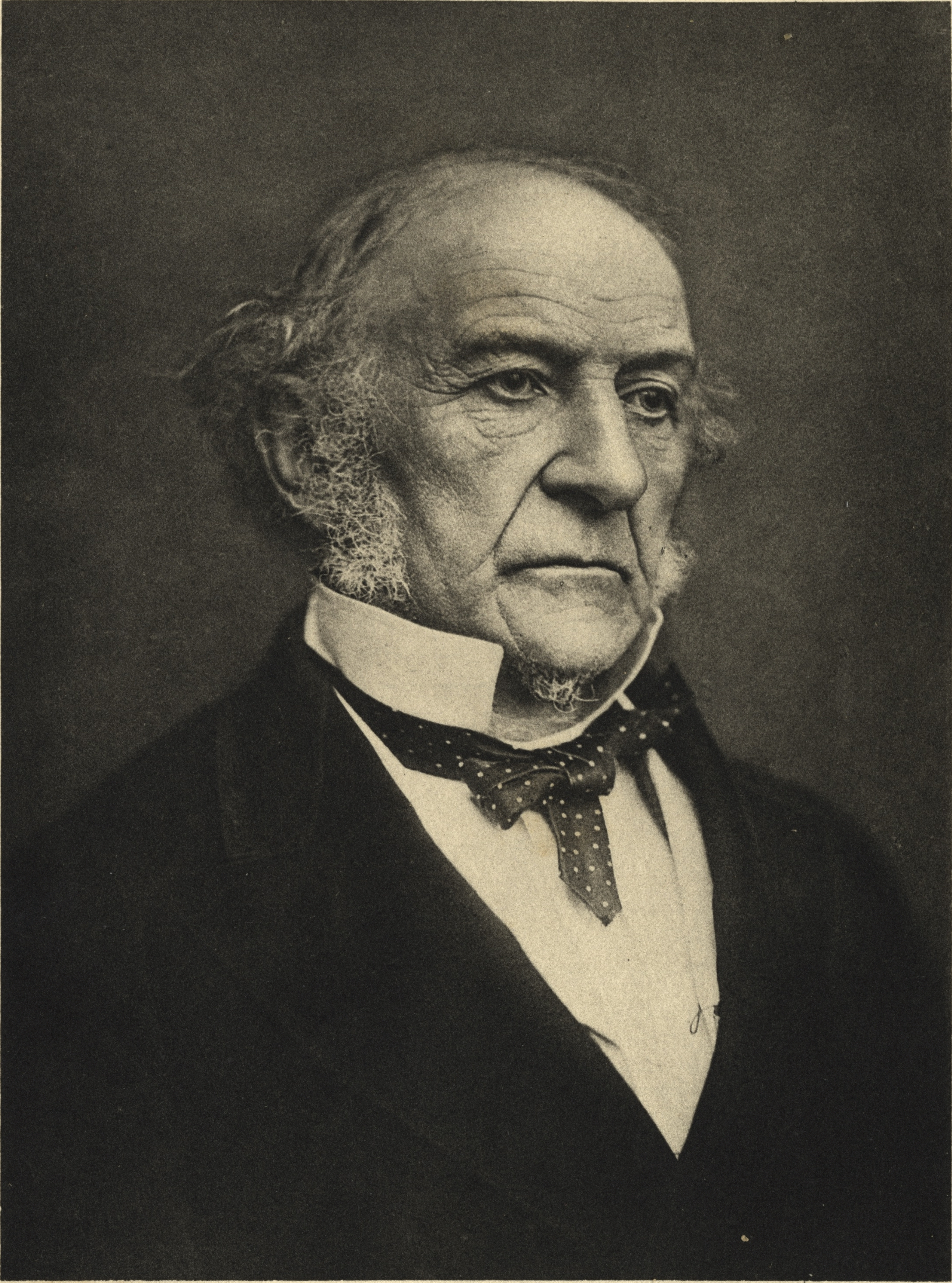citato in Carlo Alianello, La conquista del sud, Rusconi Editore
William Ewart Gladstone frasi celebri
“Questa è la negazione di Dio elevata a sistema di governo.”
citato in Giuseppe Fumagalli, Chi l'ha detto?, Hoepli, 1921, p. 145
William Ewart Gladstone: Frasi in inglese
Jeventus Mundi: The Gods and Men of the Heroic Age (1870) p. 289. https://archive.org/stream/juventusmundigod00glad_1#page/288/mode/2up
1870s
Speech in London (30 June 1888), quoted in The Times (2 July 1888), p. 7.
1880s
Speech to the Eisteddfod in Wrexham (8 September 1888), quoted in A. W. Hutton and H. J. Cohen (eds.), The Speeches of The Right Hon. W. E. Gladstone on Home Rule, Criminal Law, Welsh and Irish Nationality, National Debt and the Queen's Reign. 1888–1891 (London: Methuen, 1902), p. 58.
1880s
Liberal Manifesto (September 1885) http://oll.libertyfund.org/EBooks/Smith_0306.pdf
1880s
'Kin beyond Sea', The North American Review Vol. 127, No. 264 (Sep. - Oct., 1878), p. 180.
1870s
Speech https://archive.org/details/revisedreportofp00poli to the Political Economy Club (31 May 1876) upon the centenary of Adam Smith's The Wealth of Nations.
1870s
Speech in Edinburgh (30 June 1892), quoted in The Times (1 July 1892), p. 12.
1890s
Speech to the Liverpool Liberal Association (6 April 1866), quoted in The Times (7 April 1866), p. 9.
1860s
“[An] Established Clergy will always be a tory Corps d'Armée.”
Letter to Sir William Harcourt (3 July 1885), quoted in H. C. G. Matthew (ed.), The Gladstone Diaries: Volume 10: January 1881-June 1883 (Oxford: Clarendon Press, 1990), p. clxix.
1880s
“As he lived, so he died — all display, without reality or genuineness.”
Of Benjamin Disraeli, in May 1881 to his secretary, Edward Hamilton, regarding Disraeli's instructions to be given a modest funeral. Disraeli was buried in his wife's rural churchyard grave. Gladstone, Prime Minister at the time, had offered a state funeral and a burial in Westminster Abbey. Quoted in chapter 11 of Gladstone: A Biography (1954) by Philip Magnus
1880s
Letter to the Marchese di Rudinì (30 April 1892), quoted in Vilfedo Pareto, Liberté économique et les événements d'Italie (1970), p. 49
1890s
Pamflet The Vatican Decrees in their Bearing on Civil Allegiance: A Political Exposition (November 1874), quoted in All Roads lead to Rome? The Ecumenical Movement (2004) by Michael de Semlyen.
1870s
Even the economical considerations of materially augmented cost do not appear to be wholly trivial.
Origine: Liberal Manifesto (September 1885) http://oll.libertyfund.org/EBooks/Smith_0306.pdf
Hence there grew up, what has been rare in the history of the world, a kind of tolerance in the midst of cruelty, tyranny and rapine. Much of Christian life was contemptuously left alone and a race of Greeks was attracted to Constantinople which has all along made up, in some degree, the deficiencies of Turkish Islam in the element of mind!
Bulgarian Horrors and the Question of the East. (1876)
1870s
Origine: [Gladstone, William Ewart, Bulgarian Horrors and the Question of the East, J Murray, London, 1876, http://www.archive.org/details/bulgarianhorrors00gladiala, 31, 2 September 2013]
“There is a saying of Burke's from which I must utterly dissent. "Property is sluggish and inert."”
Quite the contrary. Property is vigilant, active, sleepless; if ever it seems to slumber, be sure that one eye is open.
Origine: Remarks to John Morley (31 December 1891), quoted in John Morley, The Life of William Ewart Gladstone. Vol. III (1880-1898) (Macmillan, 1903), p. 469
Speech in Glasgow (5 December 1879), quoted in Michael Balfour, Britain and Joseph Chamberlain (1985), p. 212
1870s
1880s
Origine: Except from a speech https://api.parliament.uk/historic-hansard/commons/1883/apr/26/second-reading-adjourned-debate-second in the House of Commons (26 April 1883) in support of the atheist Charles Bradlaugh being permitted to take his seat in Parliament.
Origine: Except from a speech https://api.parliament.uk/historic-hansard/commons/1883/apr/26/second-reading-adjourned-debate-second in the House of Commons (26 April 1883) in support of the atheist Charles Bradlaugh being permitted to take his seat in Parliament.
'Free Trade, Railways, and the growth of Commerce', The Nineteenth Century, No. XXXVI (February 1880), quoted in The Nineteenth Century, Vol. VII (January–June 1880), p. 377
1880s
Speech http://hansard.millbanksystems.com/commons/1877/may/07/postponement-of-orders-of-the-day#column_437 in the House of Commons (7 May 1877)
1870s
Speech https://api.parliament.uk/historic-hansard/commons/1861/apr/15/first-night#column_595 in the House of Commons (15 April 1861)
1860s
Speech https://api.parliament.uk/historic-hansard/commons/1857/mar/03/resolution-moved-resumed-debate-fourth#column_1802 in the House of Commons against the Second Opium War (3 March 1857)
1850s
Letter to Sir John Cowan (17 March 1894), quoted in The Times (22 March 1894), p. 8
1890s
Speech http://hansard.millbanksystems.com/commons/1882/apr/24/ways-and-means-financial-statement#column_1298 in the House of Commons (24 April 1882)
1880s
Speech to the Hawarden Amateur Horticultural Society (17 August 1876), as quoted in "Mr. Gladstone On Cottage Gardening", The Times (18 August 1876), p. 9
1870s
Speech in Dundee (29 October 1890), quoted in The Times (30 october 1890), p. 4
1890s
Speech https://api.parliament.uk/historic-hansard/commons/1889/jul/25/the-royal-grants#S3V0338P0_18890725_HOC_142 in the House of Commons (25 July 1889)
1880s
Speech in Westminster Palace Hotel (23 May 1878), quoted in The Times (24 May 1878), p. 12
1870s
“Public economy is part of public virtue.”
Letter to Welby (26 October 1887), quoted in Anthony Howe, Free Trade and Liberal England 1846–1946 (1997), p. 19
1880s
Letter to the Duke of Argyll (30 September 1885), quoted in John Morley, The Life of William Ewart Gladstone, Volume III (1903), p. 221
1880s
